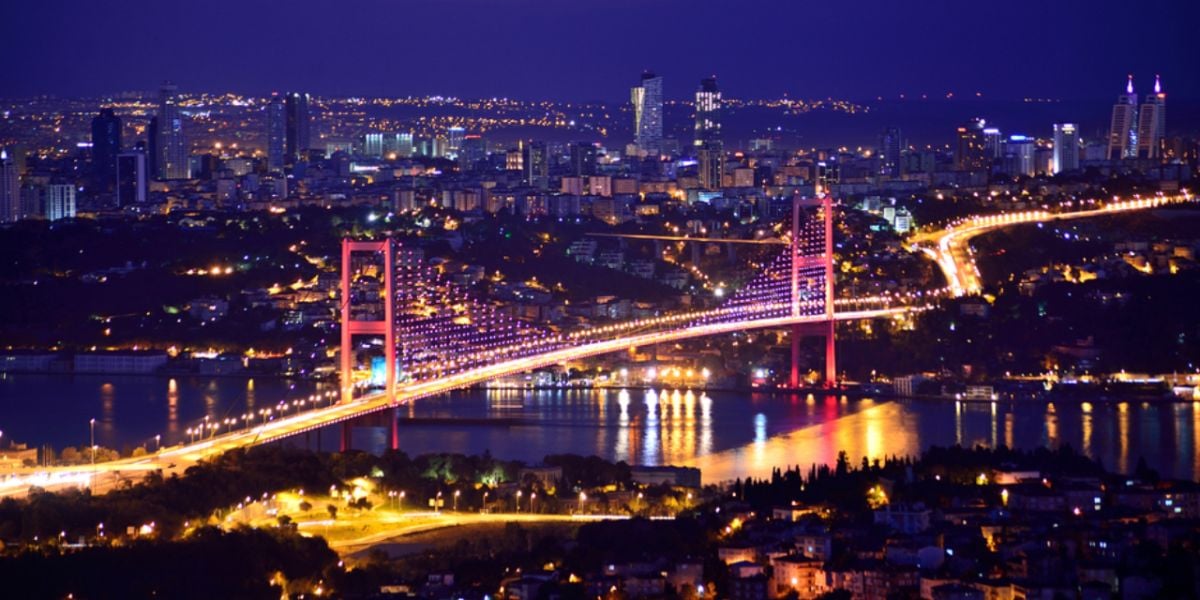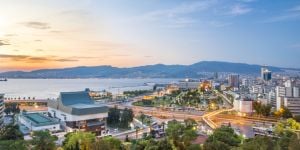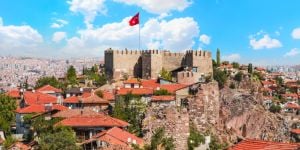
Most expats in Türkiye find themselves living in cities, where they can rely on extensive networks of public transport (including the metro, buses and trams) as well as on numerous taxis for their daily trips. Public transportation within inner cities is typically inexpensive, and the fleets are usually clean and well-maintained, with frequent and punctual departures.
Taxis in Türkiye
Taxis across the country are equipped with a meter, although some drivers will offer you fixed-price deals for specific trips (to and from airports, for example). This is not a problem confined to Türkiye, but some indelicate taxi drivers may try to take advantage of your being a foreigner to charge you unduly. Should that happen, know that the Turkish police take such swindles very seriously. Firmly explaining to the driver that you know your rights may help solve the situation.
Dolmus in Türkiye
Türkiye also has a more unexpected means of transportation - the 'dolmus', a minibus used as a shared taxi. 'Dolmus' (which in Turkish means 'it is full') do not run on a predefined schedule but rather depart once they have reached an adequate headcount. 'Dolmus' typically follows a fixed route along which they can stop anytime at the behest of passengers.
Attention:
Most 'dolmus' do not run late at night, say after 11 p.m. Payment methods in most cities include cash and a local transportation card.
City transport in Istanbul
The metro is comparatively underdeveloped, with only a handful of lines servicing this huge city, but tramways and buses are omnipresent.
Besides, ferries called 'vapur' frequently shuttle between the city's many piers on the European and Asian banks. Since March 2020, ferries in Istanbul have been operational for 24 hours.
Istanbul is built upon several hills, some of them fairly steep, so funiculars have been installed to spare passengers the uphill climb. For the same reason, cycling is not a common practice in the city. The most historic and the shortest funicular is located at Tunel, Beyoglu.
All forms of public transport tend to get very crowded at peak times. The so-called metrobus, a bus driving on a dedicated fast lane, is especially infamous for being overcrowded.
To pay the transport fare, you can either purchase single-use tokens (jeton) or get a permanent magnetic card, the IstanbulKart or Akbil. Subscription-free, the IstanbulKart can be purchased for 10 Turkish Liras from small kiosks located near the main metro stations and charged with credit at automatic vending machines inside the stations. It is valid in all public transport within the city, regardless of their type.
Attention:
The charging stations do not accept credit cards; you can only pay cash to top up your IstanbulKart.
City transport in Ankara
Ankara boasts 4 metro lines, plus a subterranean train connecting the outer suburbs to the city's main bus station, the Ankara Intercity Bus Terminal.
Trams and public or private buses form a dense network covering the whole city.
As in Istanbul, you can either buy single-use tickets called Kullan-At AnkaraKart (i.e., disposable AnkaraKart) or a proper AnkaraKart.
Attention:
The AnkaraKart is not accepted in privately operated buses (Halk Otobüsü), where you should pay cash.
City transport in Izmir
In addition to 2 metro lines (one of which services the Adnan Menderes International Airport), Izmir has an extensive network of buses and 8 ferry services linking several coastal parts of the city.
Izmir has a vast bus network that extends far and wide, making every part of the city accessible and completing the picture of the metropolis. The buses serve a wide range of routes and offer frequent services that easily combine with other forms of transportation.
Good to know:
A one-hour drive from Izmir lies the town of Çeşme. From here, you can hop on a scenic ferry ride to the Greek island of Chios.
We do our best to provide accurate and up to date information. However, if you have noticed any inaccuracies in this article, please let us know in the comments section below.








